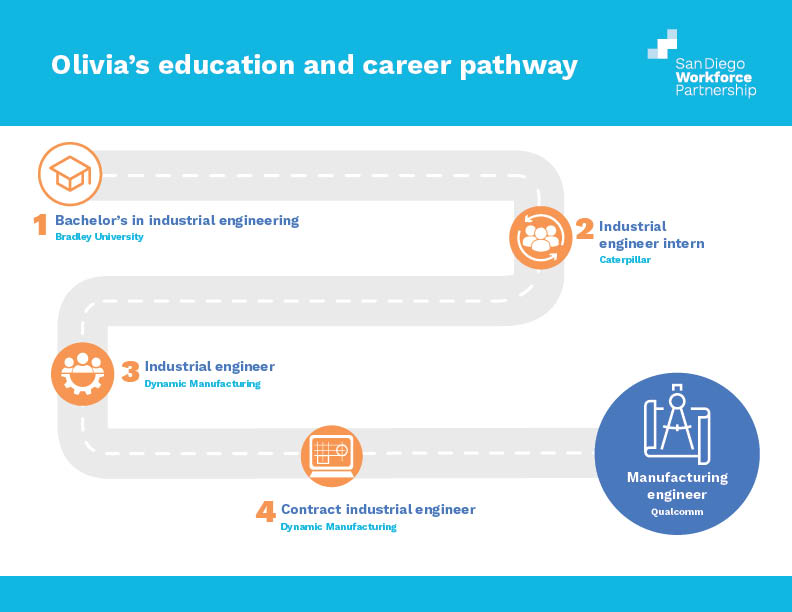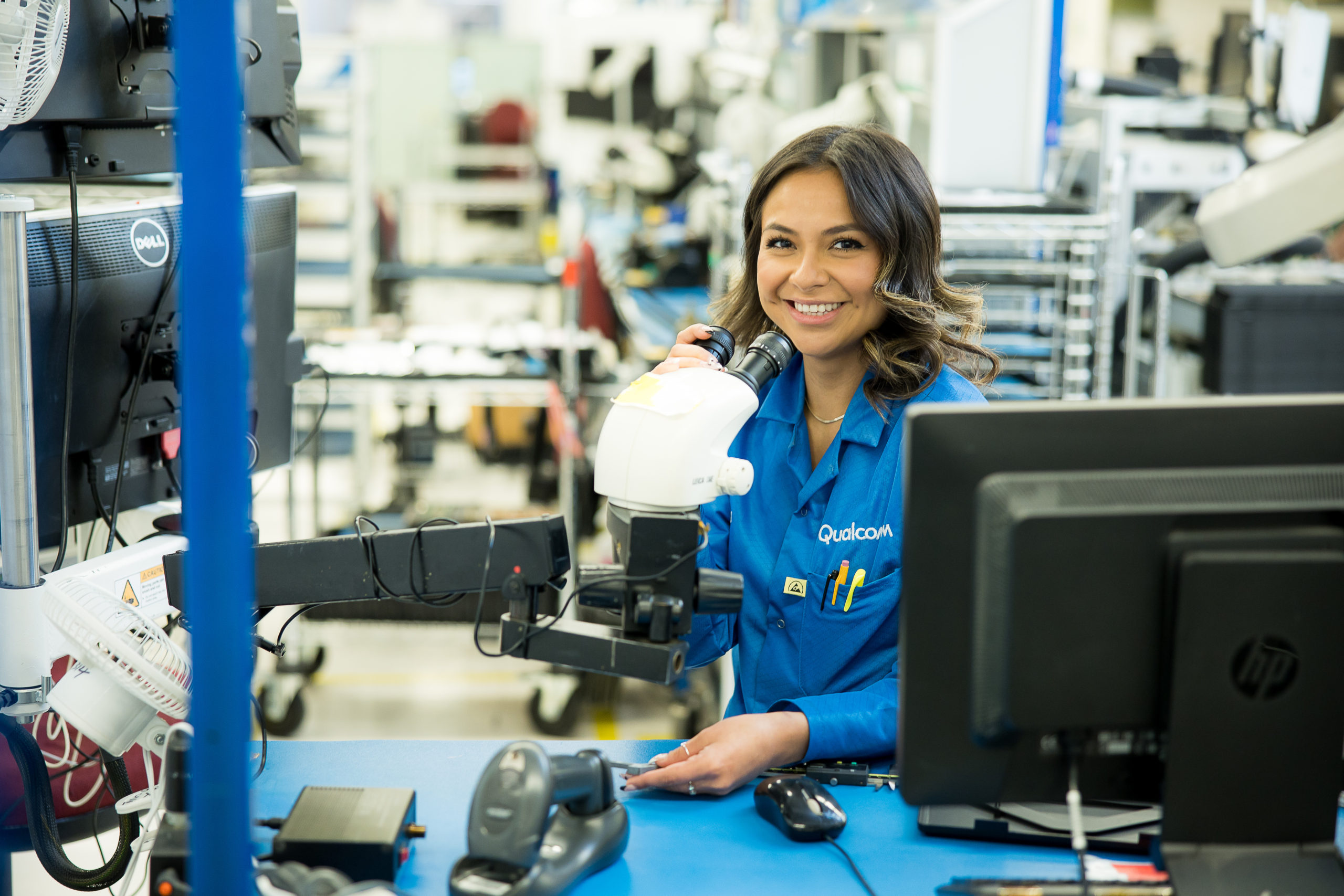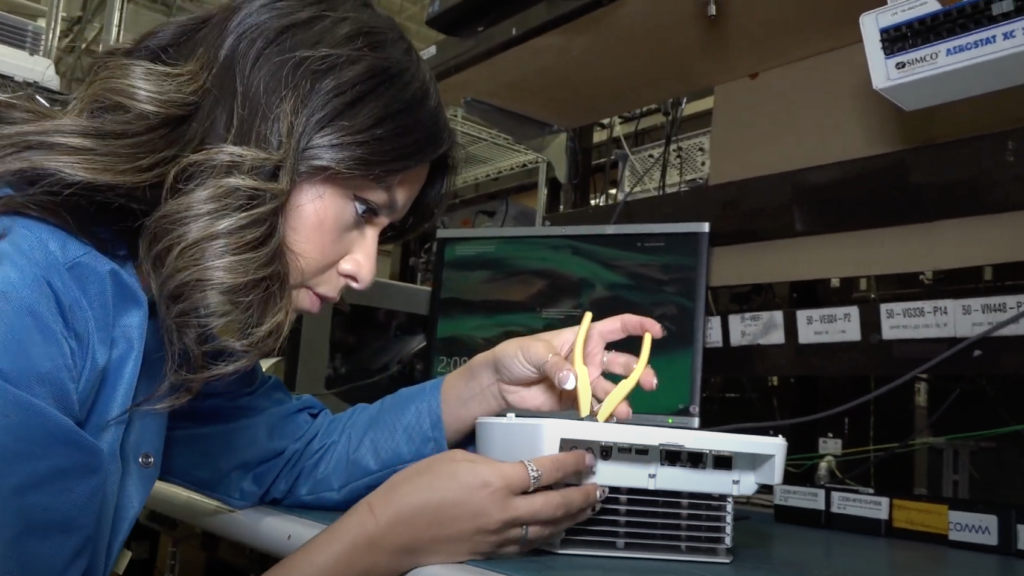Olivia Carrizales
The below interview has been edited for brevity and clarity.
How did you get to where you are today?
For me, engineering was always my number one choice in career because at the early age of 3rd grade, I fell in love with problem solving, research and development. Math concepts came easily to me, and I had a passion for science.
At that point, the lack of STEM role models who were women of color was not even on my radar. However, I did feel slightly discouraged when college application time rolled around, and I discovered the gender ratios in engineering. The biggest challenge for me was adapting to the college system way of learning while simultaneously adapting to living on my own, away from home and family.
When I got to college, I heard a lot of my peers say things like, “When my mom was in school, she did ‘this,’” or “My older brother told me to take morning classes because of ‘that.’” I didn’t have anyone to give me advice on what to expect going in, so I learned everything along the way.
I overcame this obstacle by not having a “victim mentality” but instead reminding myself that I am the start of the change in my family. By the start of my sophomore year, I felt like a college professional, and I even signed up to mentor incoming freshman who were also first-gen students to give them advice and help with their transition into college. I am also proud to say, I have passed down advice to two of my siblings during their start of college!
What was your training or education?
I earned my bachelor’s degree in industrial engineering with a minor in business management and leadership from Bradley University. Initially, my focus was on process improvement and data analytics, and I aimed to secure a job in these areas. However, it was during my internships and my first job at a transmission manufacturer that I discovered my true passion lies in hands-on work—research and collaborating with technical teams to solve problems effectively. These experiences helped me gain a clearer understanding of my career preferences and have driven me to pursue roles that align with my strengths and interests.

Describe your job. What are the most important skills you use in your work?
Three of the most important skills are passion, communication and responsibility. If you’re not passionate about the work that you’re doing, the quality of your work may begin to slip. Communication because you can be the smartest person in the room, but if you can’t communicate those ideas to the team around you, nothing will come of it. And thirdly, responsibility; it’s important to take accountability for not only the work that you’re putting in, but also for the company. In situations where you are unsure about something, you’ll take that as a learning opportunity and raise your hand and ask for help, rather than letting the quality of the work suffer by trying to get it done on your own.
What do you love most about your job?
I love that every day is different—essentially what I do is problem solve. I work with mechanical designers to establish what needs to be built. Then I train a team of assemblers on how to build it and support them during the process of diagnosing any problems that may arise. When there is a problem, my job is to get everything back up and running as quickly and as efficiently as possible.

What is something you find challenging about your job?
One of the biggest challenges in my role is doing research and keeping current on industry problems. Even with a problem I’ve never encountered before, it could come up as soon as the next day, so I make sure to be ready to tackle any new problem by staying proactive and always learning.
What advice do you have for others thinking about working in engineering?
While caring about the quality of your work is important, be mindful that there is a line that cannot be crossed. Taking on others’ workload will get overwhelming, burn you out, and ultimately, the extra work you do will become others’ expectation of you.
This is something I struggled with throughout college and my career. In college, if my peers would fall behind on their portion of a group project, I would do their work. At work, if my teammates were out of the office or simply neglecting their work, I would do it so the project didn’t suffer. I ended up helping in silence and the additional workload became stress, which got bottled up inside.
My advice is: It is okay to take steps back. It is okay to say, “I have a heavy workload right now, I can’t commit to that at this time.” It is okay to have difficult conversations in a professional manner to shine light on reoccurring issues to see better results.



